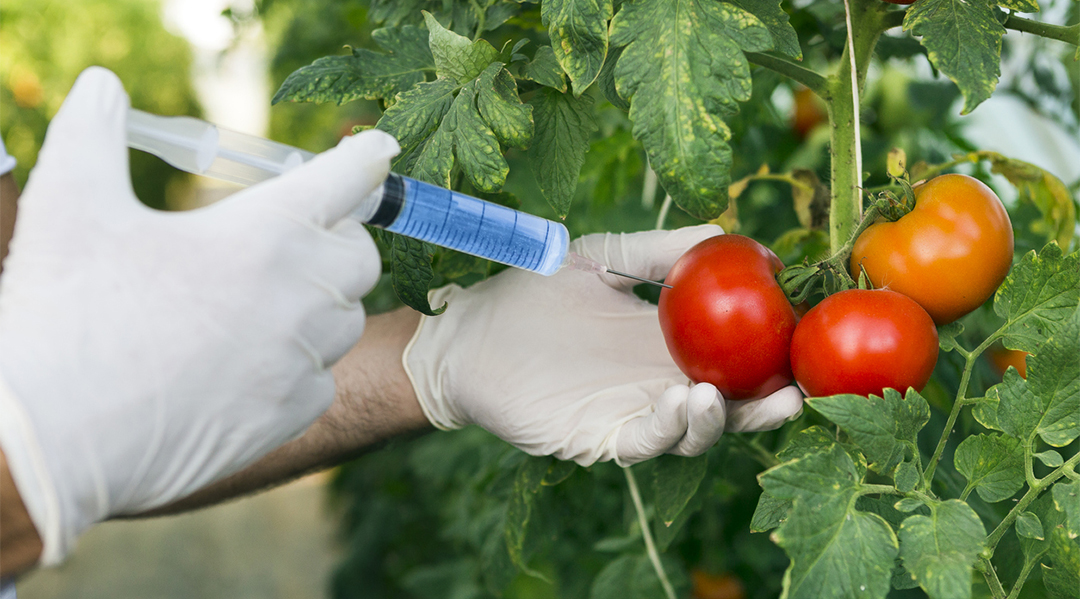MS8/RF3 Canola Event Detection Testing
The MS8/RF3 event in canola (Brassica napus) is a genetically modified organism developed by Syngenta Seeds, now part of BASF. This genetic modification allows for resistance to imidazolinone herbicides, which are commonly used in agricultural practices. The detection and monitoring of this specific event within the global canola supply chain ensures compliance with international regulations aimed at maintaining food safety, environmental protection, and consumer trust.
Our MS8/RF3 Canola Event Detection Testing service is designed to provide accurate and reliable identification of this genetic modification in seed lots, harvested crops, and processed products. This testing method utilizes advanced molecular techniques that can differentiate between natural canola varieties and those containing the MS8/RF3 event. The importance of such testing cannot be overstated, especially in regions where genetically modified organisms are subject to strict regulatory frameworks.
The process begins with sample collection from various stages of production, including seeds, plants, or finished products. Samples must then undergo rigorous preparation steps which involve homogenization and DNA extraction to ensure the integrity of the genetic material being analyzed. Once prepared, these samples are subjected to PCR (Polymerase Chain Reaction) analysis—a standard technique for amplifying specific segments of DNA. The primers used in this process are designed to target unique sequences within the MS8/RF3 event, allowing us to detect its presence accurately.
The results generated from our testing procedure provide detailed information about the percentage of the MS8/RF3 event present in each sample analyzed. This level of precision is crucial for ensuring compliance with labeling requirements and preventing contamination issues that could arise if unapproved genetic modifications were inadvertently introduced into commercial markets. By offering this service, we contribute to safeguarding both producers' interests by maintaining product integrity and consumers’ rights through accurate labeling.
Our approach also considers broader implications such as potential cross-contamination between different varieties during cultivation or processing stages. Understanding these factors helps us develop more robust protocols aimed at minimizing risks associated with unintended GMO presence in non-GMO products. Furthermore, our testing services play a vital role in supporting ongoing research efforts focused on understanding the long-term impacts of genetic modifications like MS8/RF3.
By leveraging state-of-the-art technology and adhering strictly to recognized standards such as ISO 17025 for laboratory accreditation, we ensure that our results are reliable, repeatable, and widely accepted across international borders. Our commitment extends beyond mere compliance; it includes proactive measures aimed at fostering transparency within the agricultural sector while enhancing public confidence in genetically modified organisms.
- Ensures strict adherence to regulatory requirements for GM crops
- Minimizes risks associated with unintended contamination of non-GMO products
- Safeguards producer interests by maintaining product integrity and value
- Fosters transparency within the agricultural sector through accurate reporting
Why It Matters
The MS8/RF3 Canola Event Detection Testing is significant because it addresses critical issues related to genetic modification in canola crops. These events, like MS8 and RF3, are specifically engineered to confer resistance to certain herbicides. However, their presence must be monitored carefully due to potential environmental and economic impacts.
One key reason this testing matters is to prevent cross-contamination between GM and non-GM canola varieties. If GM traits spread into conventional or organic crops through pollen transfer during flowering periods, it could lead to unintended labeling discrepancies or even legal disputes regarding product authenticity. Our detection methods help mitigate these risks by providing precise quantification of the MS8/RF3 event in mixed populations.
Another important aspect is ensuring compliance with international regulations governing the cultivation and trade of genetically modified organisms (GMOs). Different countries have varying policies on labeling, import restrictions, or outright bans on certain GM events. By detecting the presence of specific events like MS8/RF3, we enable traders and manufacturers to meet these stringent requirements accurately.
The economic benefits are substantial too; farmers can avoid costly recalls if they inadvertently sell contaminated batches of non-GM canola seeds or oilseeds. Similarly, processors can protect their brand reputation by ensuring that only approved GM varieties enter the supply chain.
Benefits
- Precise quantification of MS8/RF3 event in canola samples
- Avoidance of unintended contamination leading to label discrepancies
- Maintenance of product integrity and value for producers
- Supports transparency within the agricultural sector through reliable reports
Customer Impact and Satisfaction
Our MS8/RF3 Canola Event Detection Testing service has a profound impact on customer satisfaction by addressing their primary concerns regarding product safety, quality assurance, and regulatory compliance. For instance, seed producers rely heavily on our testing to ensure that they deliver high-quality seeds free from unauthorized genetic modifications. This not only enhances their reputation but also builds trust among end-users who value purity in agricultural inputs.
Similarly, processors benefit greatly from knowing exactly how much MS8/RF3 event is present in raw materials before processing them into finished products. Such knowledge allows them to optimize production processes while minimizing waste and costs associated with potential recalls or rejections by regulatory bodies.





